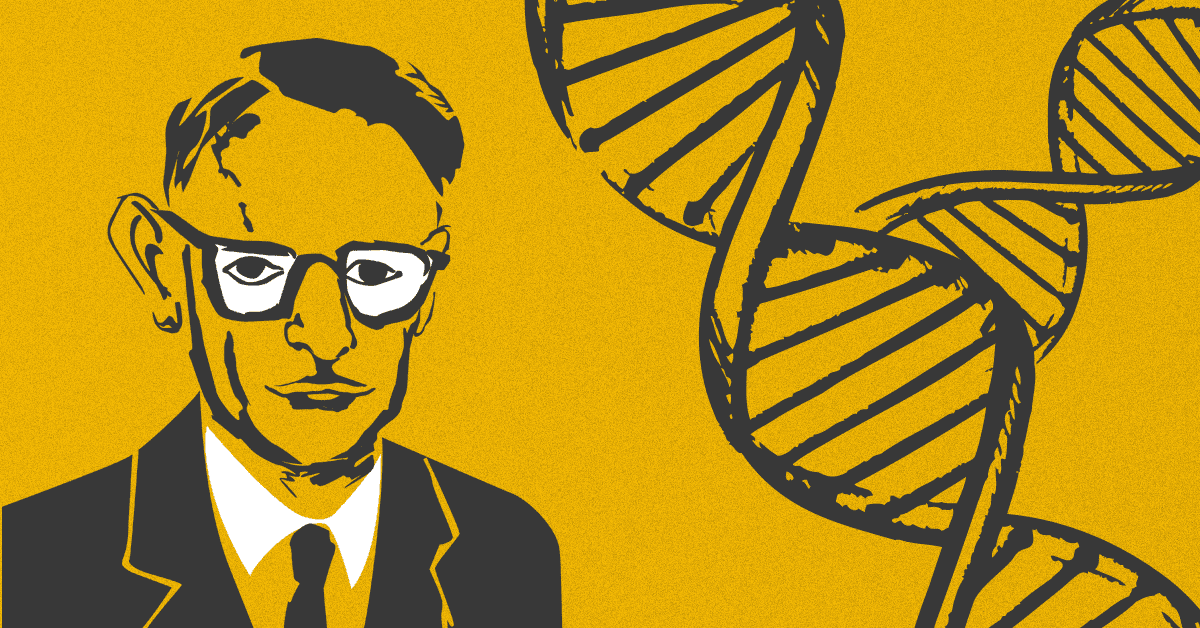Dr. Har Gobind Khorana: A trailblazing code breaker

We’re celebrating Asian American and Pacific Islander Heritage Month by shining a spotlight on scientists whose work changed the world. These scientists share a common heritage that traces back to Asia or the Pacific Islands, but they share more than that—each of them had a passion for science that drove them to make history. Join us as we celebrate these figures all month long.
We must be modest except in our aims.Otto Loewi
Few endeavors in science are modest. Even some of the seemingly more mundane and straightforward questions require a diligent, methodical, and bull-headed approach to truly reach a satisfying answer. There are still, of course, those discoveries that stand out. One such discovery was made thanks to Dr. Har Gobind Khorana, who was instrumental in deciphering the genetic code that’s written in our DNA. The above quote appears in the preface of a book (Selected Papers of H. Gobind Khorana) written by Dr. Khorana and has since been referenced by others to describe him. Dr. Khorana was a modest but exceptionally important scientist whose work forever changed science and the world at large.
A series of landmark studies in the 1940s and 1950s indicated that the DNA sequence held coded instructions for how to build life. Genes within the DNA somehow told the body how to build proteins using specific sequences of amino acids. This was a momentous time for molecular biology, but if it was going to advance further, it had to overcome a significant roadblock: Scientists had no idea how the DNA coded for amino acids, and they were ill equipped to find out. But in the early 1960s, Marshall Nirenberg discovered that the genetic code was broken up into codons—groups of three nucleotides whose sequence coded for a specific amino acid. Dr. Nirenberg’s research set in motion a feverish race among scientists to discover more links between codons and amino acids. Dr. Khorana took up the challenge.
He was a trailblazer in multiple scientific disciplines including chemical and structural biology
Khorana was born in Punjab, India, where he studied diligently and became one of the few individuals in his city who could read and write1. His passion for learning helped him become a skilled chemist. After obtaining his Ph.D., Dr. Khorana had made a name for himself by being the first person to chemically synthesize ATP and several other biologically relevant molecules1,2. He brought his expertise from chemistry into molecular biology where he reportedly worked day and night in an effort to synthesize every codon. His chemistry-based approach worked brilliantly and led to his description of several new codons. Between Dr. Khorana, Dr. Nirenberg, and Dr. Robert Holley, the three labs were able to break the code of DNA and show the world how proteins are made. For these discoveries, the three men shared in the 1968 Nobel prize in Physiology or Medicine. This award made Dr. Khorana the first person from India—and Asia as a whole—to receive the Nobel prize in this category.
At the young age of 46, Dr. Khorana was only just getting started. He would go on to form the first synthetic gene by manufacturing a DNA sequence in the lab which coded for a specific tRNA1,2. When he inserted that sequence into a bacterium, it resulted in the successful production of the tRNA. This was an incredible feat, and the techniques he developed in this process are still used today in many research labs. He also described the total process of synthesizing tRNAs in unprecedented detail, and was a trailblazer in multiple scientific disciplines including chemical and structural biology1,2. He was more than just a great scientist, though—he was also a prolific teacher who mentored nearly 250 researchers over his career1. It is not possible to describe all of the profoundly important contributions that Dr. Khorana made to the world of science, but it is no exaggeration to say that he profoundly changed the way we understand the molecular world and inspired generations of brilliant minds.
1Sakmar, Thomas P. “Har Gobind Khorana (1922–2011): Pioneering Spirit.” PLoS Biology 10.2 (2012): e1001273. PMC. Web. 8 May 2018.
2Ansari, Aseem Z., et al. “Har Gobind Khorana 1922–2011.” Cell, vol. 147, no. 7, 2011, pp. 1433–1435., doi:10.1016/j.cell.2011.12.008.